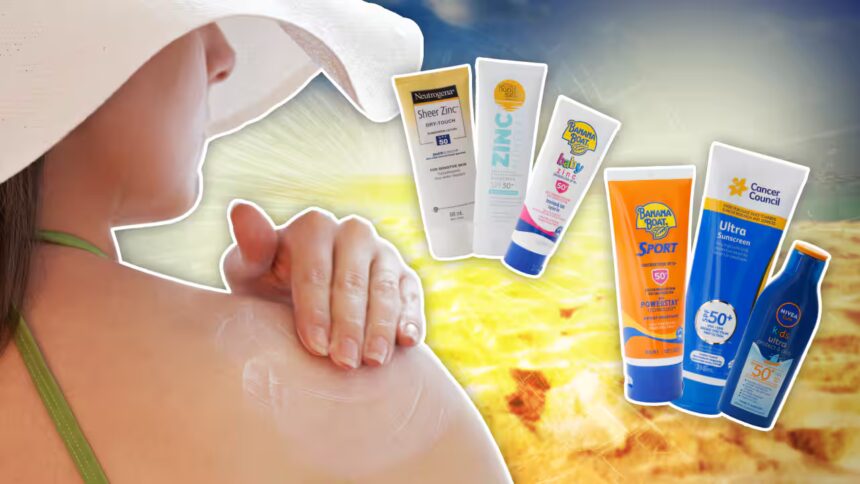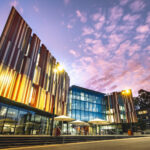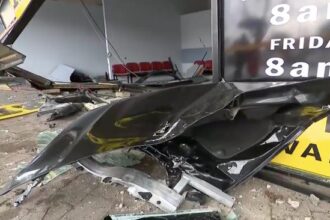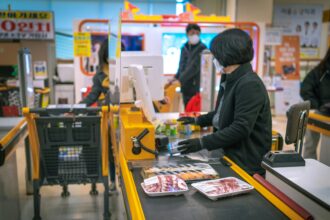Sunscreen Scandal in Australia: Only 4 of 20 Products Meet SPF 50+ Claims
“Some companies whose products failed the testing conducted by the consumer group stood by their products while one said it would take its sunscreens for further testing.”
Only 4 out of 20 sunscreens tested lived up to their SPF 50+ claims, according to CHOICE Australia.
Consumer Confidence Shaken by Failed Sunscreen Claims
Many Australians rely on high-SPF sunscreens to stay safe in the sun, especially with the country’s high UV levels and rising skin cancer rates. However, a recent report by consumer group CHOICE has cast doubt on the reliability of many sunscreen labels. The organisation tested 20 popular sunscreen products and revealed alarming results — only four met their SPF 50 or 50+ claims, while others performed far below expectations.
Consumers trust SPF ratings as a measure of sun protection, but the findings raise concerns over the actual effectiveness of several widely used products. These results have sparked controversy, backlash from brands, and calls for regulatory scrutiny.
CHOICE Reveals Alarming Testing Results
CHOICE conducted the SPF testing using a solar simulator on volunteer skin samples in a laboratory setting. The process applied sunscreen to a measured section of skin, exposed it to artificial UV rays, and compared it to an unprotected control area. This allowed them to calculate a real SPF rating for each product.
Out of the 20 tested products, only four lived up to their SPF 50+ claims:
- La Roche-Posay Anthelios Wet Skin Sunscreen SPF 50+ — tested at 72
- Neutrogena Ultra Sheer Body Lotion SPF 50 — tested at 56
- Cancer Council Kid Sunscreen 50+ — tested at 52
- Mecca Cosmetica To Save Body SPF 50+ Hydrating Sunscreen — tested at 51
The Failures: 16 Sunscreens Underperform
Meanwhile, 16 products failed to meet their SPF rating claims. Among the most surprising were:
- Aldi Ombra Everyday Sunscreen Lotion 50+ — tested at 26
- Banana Boat Baby Zinc Sunscreen
- Lotion SPF 50+ — tested at 28
- Bondi Sands SPF 50+ Zinc Mineral Body Lotion — tested at 26
- Cancer Council Everyday Value Sunscreen 50 — tested at 27
- Cancer Council Ultra Sunscreen 50+ — tested at 24
- Neutrogena Sheer Zinc Dry-Touch Lotion SPF 50 — tested at 24
- Woolworths Sunscreen Everyday Tube SPF 50+ — tested at 27
- Banana Boat Sport Sunscreen Lotion SPF 50+ — tested at 35
- Nivea Sun Kids Ultra Protect and Play SPF 50+ — tested at 41
Ultra Violette Product Scores Shockingly Low
The biggest shock came from Ultra Violette’s Lean Screen SPF 50+ Mattifying Zinc Skinscreen, which scored a dismal SPF 4. CHOICE was so alarmed by the result that they retested a different batch at a lab in Germany, confirming an SPF of 5. According to CHOICE CEO Ashley de Silva, this rare step was taken because of how “perturbed” the team was by the result.
“We were really shocked to see the results for Ultra Violette’s Lean Screen SPF 50+ product, so much so that we actually decided to test a different batch at a completely different lab in Germany to confirm the results. Those tests found the product had an SPF of 5 – an almost identical result to our initial testing,” said de Silva.
Brand Reactions and Denials Follow
Despite the clear results, brands stood by their products. Ultra Violette called the result “scientifically impossible”, citing the product’s 22.75% zinc oxide content. They disputed CHOICE’s methods and expressed concern for consumer trust.
Cancer Council Australia, whose products Kid Sunscreen 50+, Everyday Value Sunscreen 50, and Ultra Sunscreen 50+ failed, stated they were “very concerned” but reaffirmed the integrity of their internal testing. They committed to further testing at an independent international lab and promised to act on any concerning findings.
More Brand Responses and Industry Fallout
Other brands also reacted:
- Aldi and Coles requested full reports for further investigation.
- Banana Boat defended its products as meeting Therapeutic Goods Administration (TGA) standards.
- Bondi Sands outright disagreed with CHOICE’s conclusions.
CHOICE is urging the TGA to conduct its own compliance testing and called on the Australian Competition and Consumer Commission (ACCC) to investigate possible misleading claims in SPF labelling.
TGA Responds as Public Trust Wavers
The TGA responded, acknowledging that variability in SPF testing can occur across different labs, especially with human subject testing. However, they assured the public that SPF 30 and above still offers high protection.
“Given Australia’s high incidence of skin cancer, the TGA reiterates that using sunscreen is an important measure to prevent harmful effects of ultraviolet radiation, in addition to seeking shade, wearing a wide-brimmed hat, wearing protective clothing and using sunglasses,” the agency said.
A Call for Transparency and Reform
This incident underscores the importance of independent testing, consumer transparency, and stricter regulatory standards in Australia’s skincare industry. While some brands may be falling short, the issue highlights how essential reliable sunscreen is to everyday health and safety.






